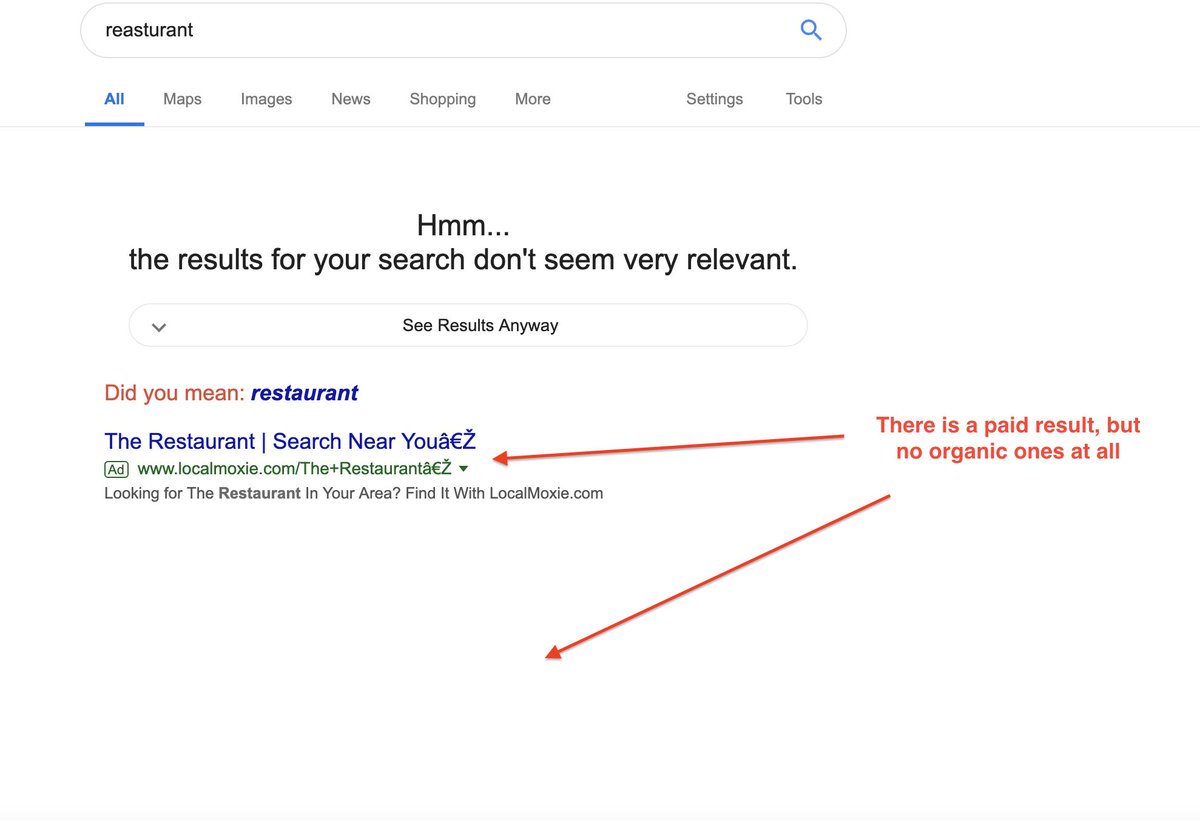Have you ever typed a query into Google, brimming with anticipation, only to be met with the digital equivalent of crickets? The frustrating experience of "we did not find results for:" is more common than you think, and it signals a deeper issue than just a lack of information.
The internet, for all its vastness, can sometimes feel like a labyrinth where the information you seek remains stubbornly hidden. This disconnect between user intent and search engine capability highlights the complex algorithms and indexing systems that power our online experiences. Understanding the reasons behind these "no results" scenarios is crucial for navigating the digital world effectively, whether you're a casual user or a seasoned researcher.
| Category | Details |
|---|---|
| Problem Indicator | "We did not find results for:" message appearing persistently after a search query. |
| Possible Causes |
|
| Affected Platforms | Google Search, Facebook Search, Microsoft Email Search, and potentially other search platforms. |
| User Experiences |
|
| Potential Solutions |
|
| Related Issues |
|
| Further Reading | Official Google Search Help Center |
The frustration extends beyond Google. Users have reported similar issues on Facebook, struggling to find posts within groups or locate specific profiles. Microsoft email users have also encountered problems when searching for emails, particularly when using POP aggregation or managing accounts with large volumes of mail. These instances suggest a systemic challenge across various platforms in effectively delivering search results that meet user expectations.
- Lean Beef Patty Age Net Worth Fitness Secrets Revealed
- Shawn Mendes Figuring Out Sexuality What He Said At Concert
One of the primary culprits behind the "no results" phenomenon is the complexity of search algorithms. These algorithms are designed to analyze a multitude of factors, including content quality, relevance, user experience, and authority, to determine the ranking of search results. However, they are not infallible. They can be tripped up by poorly worded queries, inadequate indexing of relevant content, or simply by the limitations of their analytical capabilities. The algorithms are constantly evolving, but the digital landscape evolves even faster, creating a perpetual game of catch-up.
The user's search term choices play a significant role in the outcome. A search query that is too narrow or uses obscure terminology may not yield any results simply because the algorithm cannot find a sufficient match. Conversely, a search query that is too broad may return a deluge of irrelevant results, effectively burying the desired information. Striking the right balance is key, and it often requires experimentation and a willingness to refine the search terms based on the initial results.
Inadequate indexing is another common reason for "no results." Search engines rely on crawlers to index the vast expanse of the internet, cataloging content and making it searchable. However, not all content is created equal. Some websites may be poorly structured, making it difficult for crawlers to navigate and index their content effectively. Other websites may intentionally block crawlers to protect sensitive information. As a result, relevant content may exist but remain hidden from search results simply because it has not been properly indexed.
- Best Free Movie Streaming Sites Legal Safe Alternatives
- Who Is Karol Rosado Exploring The Tiktok Traveler Sensation
Beyond the technical aspects, the issue of "no results" also raises questions about the nature of information itself. In an age of information overload, search engines are increasingly focused on filtering out less relevant results to prevent users from being overwhelmed. This can lead to a situation where niche topics or less popular viewpoints are effectively suppressed, making it more difficult to find information outside the mainstream. The desire to maintain high quality can inadvertently create echo chambers, where users are primarily exposed to information that confirms their existing beliefs.
The problem is further compounded by the increasing sophistication of online content. The rise of AI-generated content, for example, poses new challenges for search algorithms. While AI can be used to create informative and valuable content, it can also be used to generate spam or misinformation. Search engines are constantly working to detect and filter out AI-generated content that violates their quality guidelines, but the technology is evolving rapidly, making it difficult to stay ahead of the curve.
So, what can you do when you encounter the dreaded "we did not find results for:" message? Fortunately, there are several steps you can take to improve your chances of finding the information you seek. First, try refining your search terms. Experiment with different keywords, synonyms, and phrases. Consider using quotation marks to search for exact phrases. If you're searching for information within a specific website, use the "site:" operator to limit your search to that domain.
Second, check your network connection. A stable internet connection is essential for accessing search engines and retrieving results. If you're experiencing slow loading times or search errors, try restarting your router or connecting to a different network. You can also use speed testing websites to check your network speed and identify any potential issues.
Third, clear your cache and cookies. Cached data and cookies can sometimes interfere with search results, particularly if they are outdated or corrupted. Clearing your cache and cookies can help ensure that you're seeing the most up-to-date information.
Fourth, disable SafeSearch. SafeSearch is a setting that filters explicit results, such as adult content or graphic violence, to prevent them from appearing in your search results. While SafeSearch is a useful tool for protecting children and preventing exposure to unwanted content, it can also inadvertently block legitimate search results. If you're confident that you're not searching for anything inappropriate, try temporarily disabling SafeSearch to see if it makes a difference.
Fifth, update your apps and browsers. Outdated apps and browsers can sometimes cause compatibility issues that interfere with search functionality. Make sure you're using the latest versions of your search apps and browsers to ensure optimal performance.
Finally, if you've tried all of the above and you're still unable to find the information you seek, consider contacting the platform's help center for assistance. Google, Facebook, and Microsoft all offer extensive help resources that can provide guidance and troubleshooting tips. You may also be able to find solutions in online forums or communities dedicated to search engine optimization.
The persistent appearance of "we did not find results for:" is a reminder that the digital world is not always as seamless and intuitive as it appears. Search engines are powerful tools, but they are not perfect. By understanding the limitations of these tools and adopting effective search strategies, you can improve your chances of finding the information you need and navigating the digital landscape with greater confidence.
The complexities extend to specific platforms like Facebook, where users report persistent issues within groups. Clearing browsing data, history, cookies, and cache doesn't always resolve the problem, suggesting deeper, platform-specific challenges. The same search might yield no results on a laptop but work on a different device, highlighting inconsistencies that defy simple explanations.
In the realm of email, Microsoft users face similar frustrations, especially with POP accounts and large mail volumes. The sheer volume of emails can strain the search function, leading to incomplete or nonexistent results. This underscores the importance of efficient email management and archiving strategies.
Google's own limitations also contribute to the issue. The platform actively limits search results to prevent information overload, filtering out less relevant content to ensure users receive what it deems "useful" information. This subjective assessment can lead to the exclusion of valuable content that might be considered niche or less popular. Google also strives to maintain high quality, which can result in the demotion or outright removal of results that don't meet its stringent standards.
When Google Search isn't working, the first step is often to check your network connection. Slow loading times, page failures, and search errors frequently stem from an unstable internet connection. A network restart can often resolve these issues, and speed testing websites can provide insights into your connection's performance.
Even settings like SafeSearch, designed to filter explicit content, can inadvertently block legitimate results. Users need to be aware of these settings and adjust them as needed to ensure they're not missing valuable information. Similarly, location can play a role. Underground or rural areas with poor coverage can hinder search functionality, emphasizing the importance of connectivity.
To update the Google app, navigate to your device's app store and search for "Google" or "Google Search." Then, tap "Update" or "Install" if a new version is available. Keeping your apps up-to-date ensures you have the latest features and bug fixes, which can often resolve search-related issues.
The underlying principle is that the quality of material is paramount. Google's focus on original, informative, and valuable content, especially when considering Tely's autonomous AI agent for B2B marketing, means that content lacking these attributes may struggle to appear in search results. This underscores the importance of creating high-quality, engaging content that meets Google's evolving standards.
Ultimately, the experience of "we did not find results for:" is a complex interplay of algorithmic limitations, user error, and the ever-evolving nature of the internet. By understanding these factors and adopting proactive troubleshooting strategies, users can navigate the digital landscape more effectively and minimize the frustration of fruitless searches. The journey to find the right information often requires patience, persistence, and a willingness to adapt to the ever-changing rules of the digital game.
The power of Google Trends, meanwhile, demonstrates the reach of search data across diverse sectors, from newsrooms to charities, highlighting its capacity to reveal patterns and insights into global interests. However, this data can also be skewed by biased algorithms or manipulated trends, further emphasizing the challenges of relying solely on search results as an objective measure of information.
All football fixtures, latest results & live scores for all leagues and competitions on BBC Sport, including the Premier League, Championship, Scottish Premiership & more, are readily available, underscoring the efficiency of search engines in specific domains. However, this efficiency doesn't always translate to less structured or niche areas, where the "no results" message becomes a more familiar and frustrating experience.
The need for a stable network connection can be tested using speed testing websites. At the top of your screen, you should find your signal strength and type of data connection (like LTE). To check if you get results, try your search again. Go to an area with better coverage. Some underground and rural locations don't have connections, and this is an important step in diagnosing why Google search results are not appearing as expected.
- Ullu Web Series 2024 Top Picks New Releases More
- Your Ultimate Guide Find Where To Stream Movies Shows


